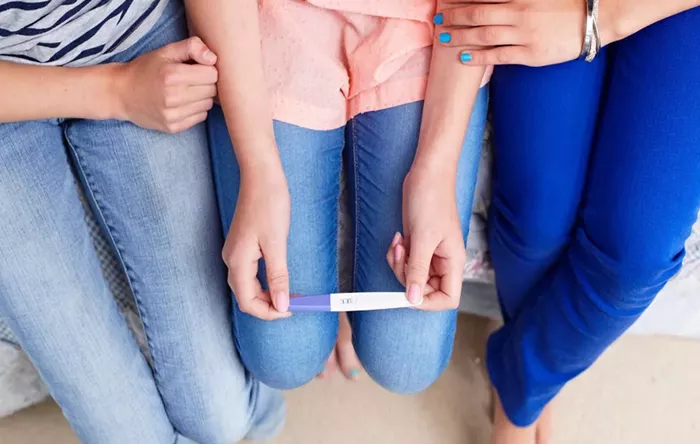For three years, Silvia Alanis visited high schools in a small town in northern Argentina, teaching sex education and distributing birth control as part of a federally funded initiative aimed at reducing teen pregnancy rates.
However, under President Javier Milei’s administration, the program has been largely dismantled. Milei, who has referred to feminism as a “ridiculous” movement and labeled abortion as “aggravated murder,” is cutting back on policies that promote gender equity and women’s health as part of a broader austerity strategy to address Argentina’s economic crisis.
In 2024, around 600 staff members involved in the teen pregnancy prevention program were laid off, halting much of the program’s work. The initiative, which employed hundreds of workers nationwide, had been credited with a significant decline in teen pregnancy rates, according to experts.
Alanis, who was among those let go, recently received a message from a staff member at one of the high schools where she worked. The message reported that two girls—ages 15 and 14—were pregnant, with the worker expressing, “We really miss you.”
A Shift in Social Policy
Argentina, long known as one of Latin America’s most socially progressive countries, made headlines in 2020 when it became the largest Latin American nation to legalize abortion. Protests against violence against women in 2015 sparked a widespread feminist movement that gained traction across the region.
But Milei’s presidency marks a sharp shift away from these progressive policies. Elected in 2023 on a platform focused on reversing Argentina’s economic decline, Milei’s government has aggressively followed through on austerity measures. This includes significant cuts to programs aimed at women, gender equality, and reproductive rights.
One such cut is to the Office of Sexual and Reproductive Health, which provides contraception and abortion pills. Its budget was slashed by nearly two-thirds in 2024, and since the beginning of the year, the government has failed to distribute new supplies of abortion pills to the provinces. Provincial governments, which typically rely on federal distribution, have been forced to purchase the pills independently.
Milei has also made controversial moves to restrict gender-inclusive language in official documents. On International Women’s Day, his government renamed the Hall of Women in the presidential palace, replacing portraits of female leaders with those of former male statesmen.
Economic Priorities and Public Reaction
Milei’s fiscal policies, including deep cuts to public spending in health, education, and social programs, have drawn both praise and criticism. Supporters, including investors and the International Monetary Fund, have commended his efforts to reduce Argentina’s chronic fiscal deficit and bring down inflation, which had been running in the double digits. Inflation dropped from over 100% at the time of Milei’s inauguration to around 3.5% by mid-2024.
However, the economic measures have come at a significant cost. Argentina’s poverty rate surged to nearly 53% in the first half of 2024, up from about 42% when Milei took office. The government’s reductions in subsidies and social support have made it harder for many families to afford basic goods. Protests from university students, pensioners, and other groups have become increasingly common.
Milei also closed the Ministry of Women, Genders, and Diversity shortly after taking office, alongside several other ministries. He has criticized abortion rights activists, calling feminism an “unnatural battle between man and woman,” and has condemned mandatory sex education in schools, labeling it as “brainwashing.”
Impact of the Teen Pregnancy Program
The teen pregnancy prevention program, launched in 2018, focused on 12 provinces with the highest teen pregnancy rates. Alanis worked in Salta, where she provided contraceptive counseling and education to high school girls. “We were neither parents nor teachers,” she said. “Our job was to support the students without judgment.”
Rafaela, a 16-year-old girl from a conservative family, turned to Alanis for help after a traumatic abortion experience that left her with a life-threatening infection. She ultimately sought contraception and received an implant through Alanis’s program. “We were a safe space for them,” Alanis said of her role.
Between 2018 and 2021, the teen pregnancy rate across Argentina fell sharply, particularly in the 12 provinces with the program. The rate dropped by nearly 46% in those areas, compared to a 42% drop nationwide. The previous government had planned to expand the program in 2023, but under Milei’s administration, the initiative was scaled back as part of efforts to reduce public spending.
The Future of Reproductive Health Programs
In addition to the teen pregnancy program, other key initiatives have also faced cuts. The Acompañar program, which provided financial aid to women and LGBTQ+ individuals facing gender-based violence, was also slashed. The program’s hotline and financial support, equivalent to six months of minimum wage, helped 350,000 people. The Ministry of Women’s programs are now overseen by the Ministry of Justice, which has controversially stated that “violence doesn’t have a gender.”
One of the most pressing concerns for human rights groups is the federal government’s failure to supply abortion medication this year. With no new distribution of abortion pills, provinces have been forced to find alternative sources, a situation that has raised alarm among reproductive health advocates.
“There’s no justification for the delay,” said Lucila Galkin, director of Amnesty International’s Argentina chapter. “The government’s failure to act is a clear violation of women’s rights.”
A Deepening Crisis
Experts argue that addressing teen pregnancy is an important economic issue, as young women who become mothers often drop out of school and face lower earning potential. Despite the government’s cuts, there is growing support in Congress to reinstate the teen pregnancy prevention program through legislation.
Valeria Isla, a former director of the Health Ministry’s Office of Sexual and Reproductive Health, called the dismantling of the program “a complete failure of public policy.” She expressed concern over the long-term impact of Milei’s decisions, saying, “The results are devastating.”
As the debate continues over the future of reproductive rights and women’s health in Argentina, the social and economic consequences of the government’s austerity measures remain a critical issue for many Argentinians.
Related Topics:


